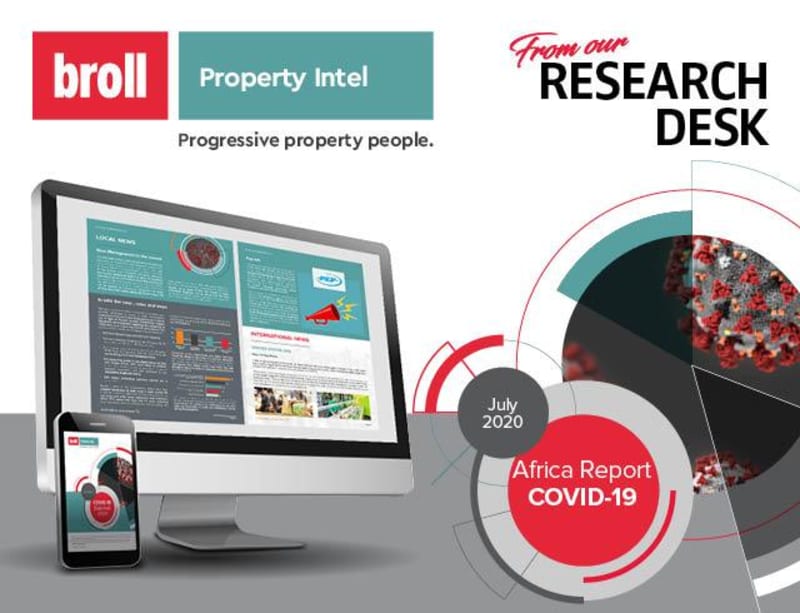To Let
Search
Latest News
Back to news results

An overview of the status-quo of the retail, office and industrial property market at 30 June 2020
As African governments continue to grapple with the impacts created by the coronavirus pandemic, the need to emerge from this difficult period puts pressure on businesses and industries to strengthen their recovery and swing dismal GDP figures.
Experiences vary, dependent on lockdown restrictions, which are aligned to the ever-changing number of casualties and recoveries of and from the coronavirus. In the COVID-19 Africa Report, Broll Property Intel, provides a broad summary of sector-specific market overviews for the retail, office and industrial sectors as at the end of June 2020, and the individual country restrictions and lockdown protocols, government aid packages, and an economic overview.
The nations covered in the report are Ghana, Mauritius, Mozambique, Nigeria, Uganda, Zambia, Kenya, Namibia and South Africa. As a collective, the nine are representative of the challenges and opportunities being confronted by this resilient continent during the COVID-19 crisis. The report is not overtly statistical and highlights some of the 'Good News' efforts that prove the solidarity of Africans.
Some of the notable findings in the Report include, but are not limited to:
Ghanaian businesses are operating on a shift basis for staff, whereas others continue to embrace working from home.
Mauritius is re-engineering business models and advancing growth avenues for information and communications technology;
Mozambique reduces its GDP forecast down to 1.3%, with the tourism sector the worst affected;
Nigeria is seeing retail market recovery despite approximately only 50% of retailers trading, as well as experiencing an uptick in fast moving consumer goods (FMCG) in the warehouse and logistics sector;
Uganda, with no COVID-19-related deaths at end June, embraces flexible office spaces and looking to increase digital workflows;
Zambia's industrial sector reports no major casualties and a recent increase in month-on-month foot traffic in retail centres;
Kenya highlights HVAC systems as important in the office environment, and reports a buoyant warehousing market and increasing need for storage;
Namibia shows positive signs of industrial sector growth and a need for more warehousing space; and
South African companies may begin to review their office space requirement, while rental growth is expected to slow even further in the industrial sector.
Overall the report reveals that COVID-19 has amplified Africa's need for investment into infrastructure, improvements in logistics, and the embrace of broader digital technology. Despite various governments recovery-related financing support, the property aspect of the industrial, retail and office markets continue to be severely challenged by appeals for the decreasing of rentals or rental payment holidays, reviewing of occupancy space, closures of small and medium range retailers, high levels of vacancies, and diminished product and services sales.
These challenges are however not considered by the Broll Property Group as insurmountable, provided quality data is factored into decision-making and local stakeholders are engaged to share their experiences and plans. Malcolm Horne, CEO of Broll Property Group emphasises that Africa needs to continue on its development path regardless. "We need to improve on our liaisons and partnerships and collectively find solutions to issues that the entire continent faces. All information and data is therefore crucial, valuable, and essential to ensure a sustainable and thriving real estate sector."
Download the full report from www.broll.com/publications